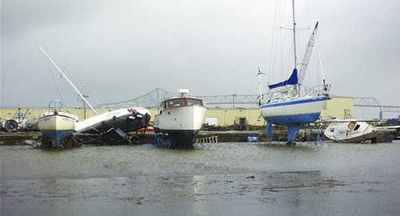 Plagued by political infighting and legal woes, the Port of Astoria has fired its executive director, Peter Gearin, and continues to face what has become a very public debate over how the port is operated.
Plagued by political infighting and legal woes, the Port of Astoria has fired its executive director, Peter Gearin, and continues to face what has become a very public debate over how the port is operated.

ASTORIA — Plagued by political infighting and legal woes, the Port of Astoria has fired its executive director, Peter Gearin, and continues to face what has become a very public debate over how the port is operated.
Leading the list of troubles are permitting issues that have prevented dredging in some parts of the port for the last three years, which could have a serious impact on business.
The agency, which has an annual budget of about $3.5 million, oversees the Astoria-area airport, cruise ship terminals, marinas and boatyards — and the 175,000 cubic feet of sediment deposited each year in the harbor by the ever-competing forces of the Pacific Ocean and the Columbia River.
Some of that material is tainted with DDT and other chemicals. A bungled 2004 dredging operation to remove some of that contaminated material left the port saddled with hundreds of thousands of dollars worth of legal bills and a still-unresolved federal investigation.
Permits to dredge more polluted soil come from the U.S. Army Corps of Engineers, with input by the National Marine Fisheries Service. And while one has been issued (and the port was able to dredge its cruise ship docks), disagreement between the port and agencies over pollution levels in some areas has prevented all required dredging.
Over time, the silt gets deeper. At low tide, docks used by sardine boats and the entry to the boat yard haul-out are too shallow to use.
Port officials could not estimate when boats would be fully blocked from those areas. When it happens, three fish processing plants — which employ more than 250 people — will sit idle. The haul-out, which the port relies on for revenue, will be unusable.
Port and fisheries service officials are working on resolving the disagreement, but no one will guess how long that could take.
— Abraham Hyatt
Have an opinion? E-mail [email protected]


